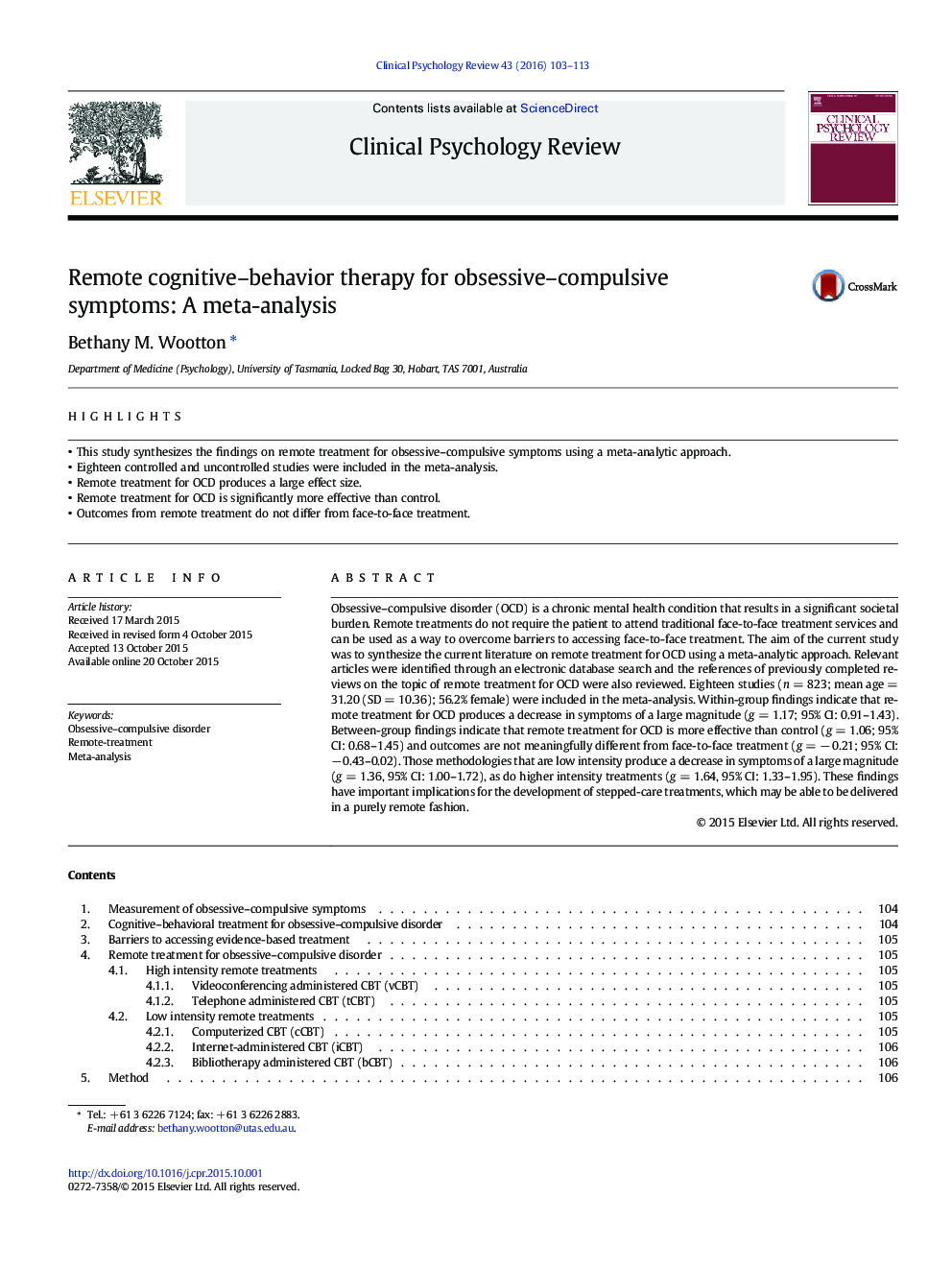| کد مقاله | کد نشریه | سال انتشار | مقاله انگلیسی | نسخه تمام متن |
|---|---|---|---|---|
| 903587 | 1472848 | 2016 | 11 صفحه PDF | دانلود رایگان |
• This study synthesizes the findings on remote treatment for obsessive–compulsive symptoms using a meta-analytic approach.
• Eighteen controlled and uncontrolled studies were included in the meta-analysis.
• Remote treatment for OCD produces a large effect size.
• Remote treatment for OCD is significantly more effective than control.
• Outcomes from remote treatment do not differ from face-to-face treatment.
Obsessive–compulsive disorder (OCD) is a chronic mental health condition that results in a significant societal burden. Remote treatments do not require the patient to attend traditional face-to-face treatment services and can be used as a way to overcome barriers to accessing face-to-face treatment. The aim of the current study was to synthesize the current literature on remote treatment for OCD using a meta-analytic approach. Relevant articles were identified through an electronic database search and the references of previously completed reviews on the topic of remote treatment for OCD were also reviewed. Eighteen studies (n = 823; mean age = 31.20 (SD = 10.36); 56.2% female) were included in the meta-analysis. Within-group findings indicate that remote treatment for OCD produces a decrease in symptoms of a large magnitude (g = 1.17; 95% CI: 0.91–1.43). Between-group findings indicate that remote treatment for OCD is more effective than control (g = 1.06; 95% CI: 0.68–1.45) and outcomes are not meaningfully different from face-to-face treatment (g = − 0.21; 95% CI: − 0.43–0.02). Those methodologies that are low intensity produce a decrease in symptoms of a large magnitude (g = 1.36, 95% CI: 1.00–1.72), as do higher intensity treatments (g = 1.64, 95% CI: 1.33–1.95). These findings have important implications for the development of stepped-care treatments, which may be able to be delivered in a purely remote fashion.
Journal: Clinical Psychology Review - Volume 43, February 2016, Pages 103–113
